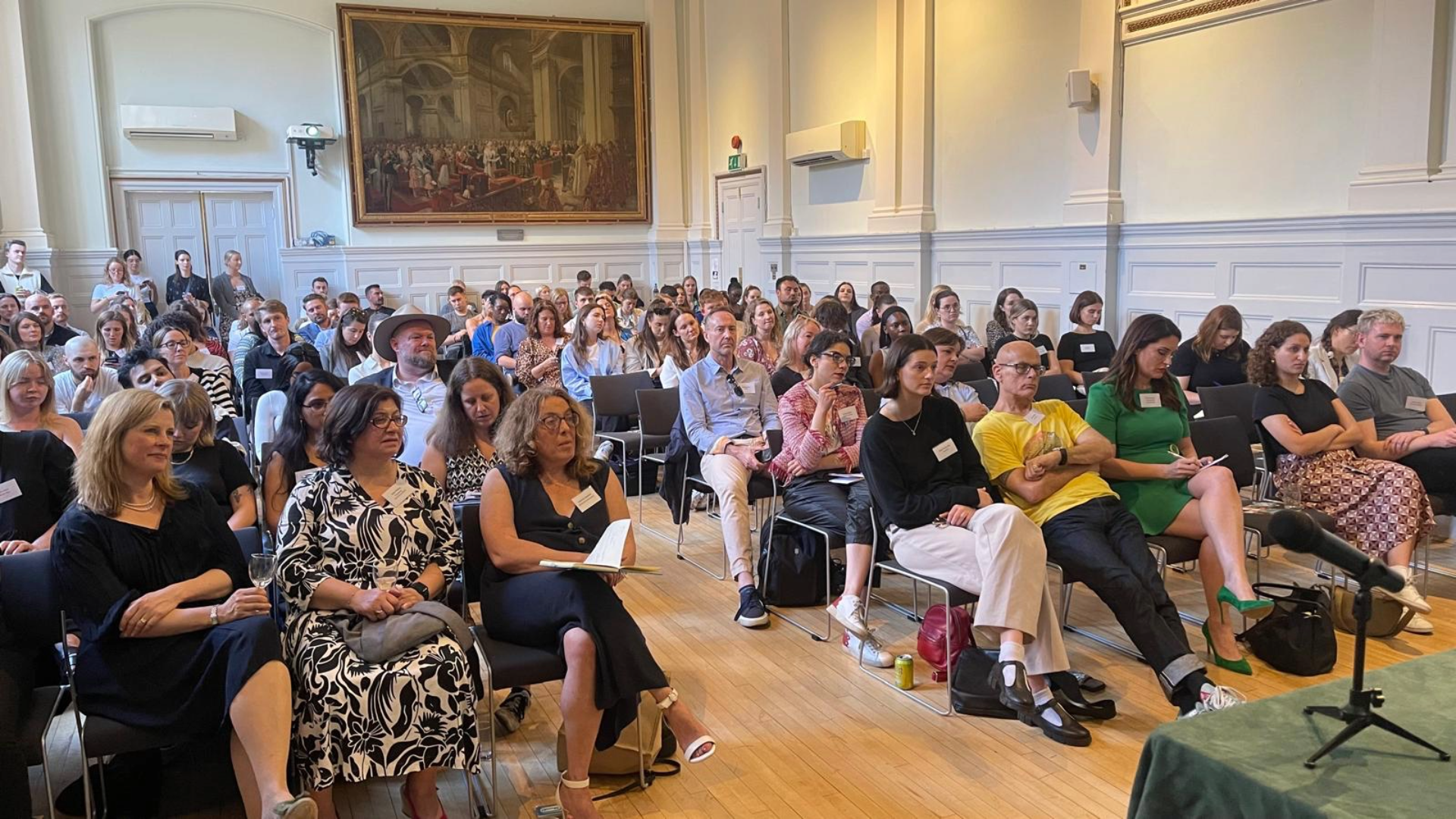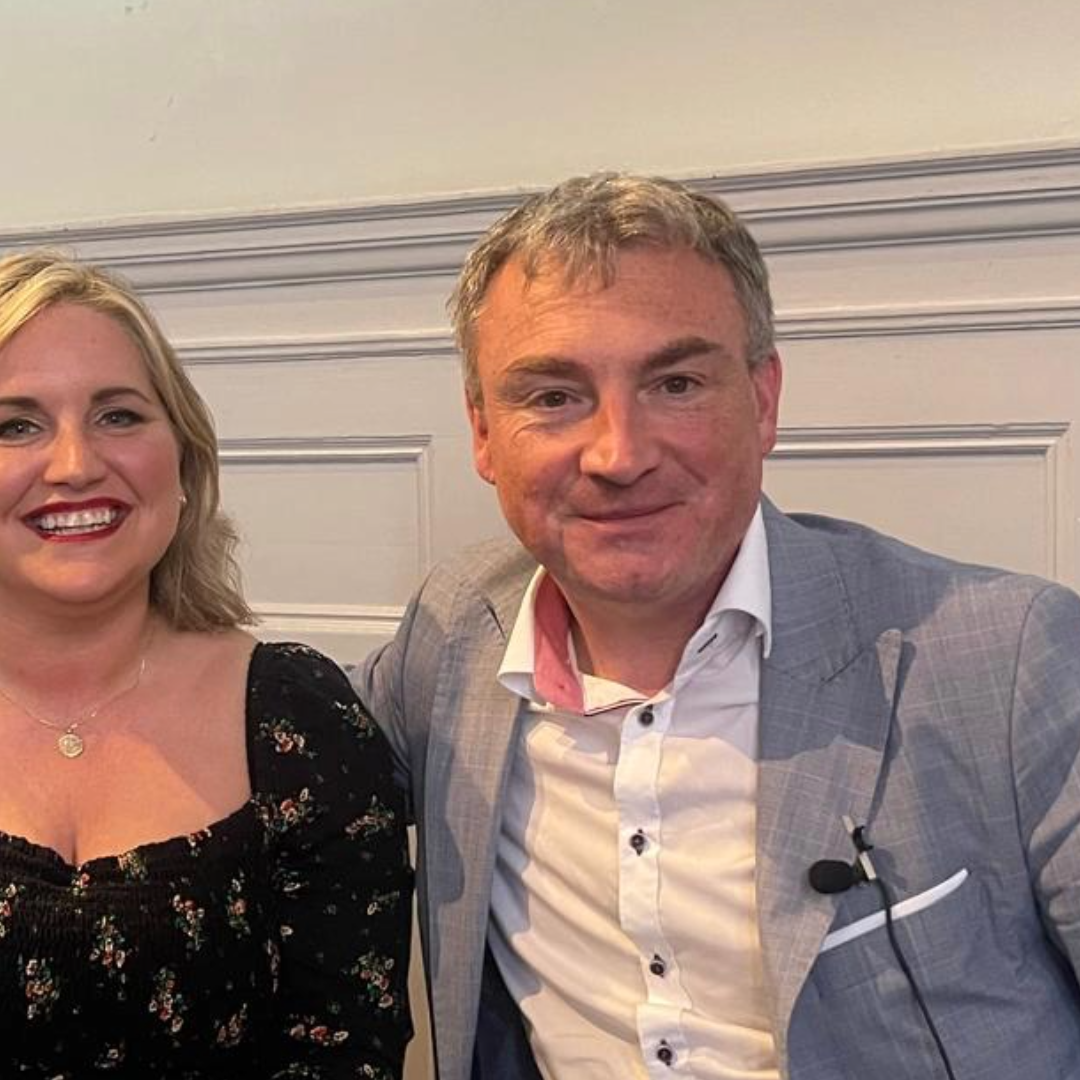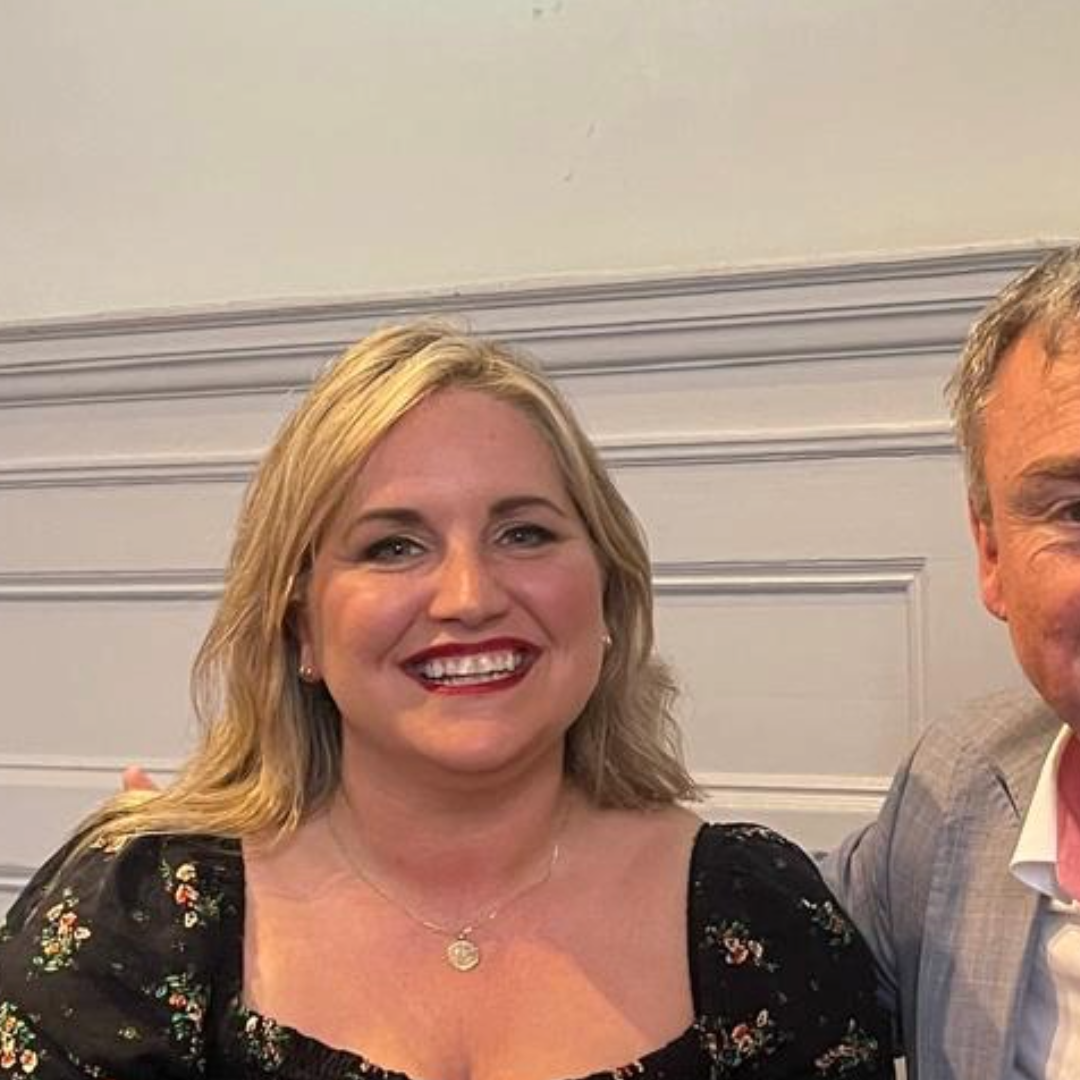For our Big Talk event in May 2024, we were joined by over 100 PR and communications professionals to, metaphorically, spend a day in the life of the BBC. Gain an insight into BBC Sounds, The One Show and Morning Live, as heard by Shout! Communications broadcast consultant Marta Malagon Manas.
What is BBC Sounds?
Jonathan describes BBC Sounds as the digital front door for all of BBC audience, aiming to be the UK’s most loved, valued and trusted home of audio.
The content on the platform includes speech and music, national and local, live radio and podcasts. It is either created by the BBC or acquired externally. A rough split would be: 60% live content, 30% podcasts and 10% music.
In an effort to grow, protect and add extra value to BBC radio stations, BBC Sounds is following in the footsteps of some commercial outlets and preparing to launch brand extensions for BBC Radio 1, 2 and 3 later in the year.
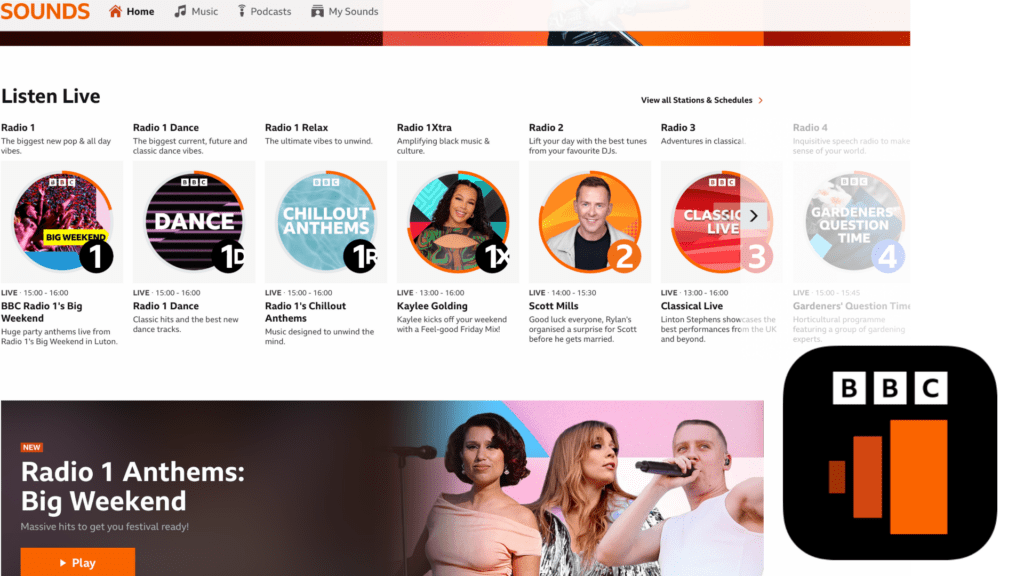
Podcasts
Podcasts are a very competitive part of the business, Jonathan says, adding that over 1 in 5 people in the UK listen to at least one podcast a week. A figure he believes will continue to grow.
Podcast listenership is particularly strong in younger audiences, with more under 35s listening to podcasts than to Radio 4 and 5 Live combined.
For podcasts listeners, habit is a key factor and for daily BBC shows such as Football Daily and Newscast, daily hits are very important.
While live content is not going away any time soon, there is a growing need for on demand content, with flagship BBC programmes such as Woman’s Hour performing well as podcasts too.
The importance of storytelling
The BBC is very good at telling stories, Jonathan says, and that’s something that works well for podcasts.
One example of journalism making a difference is the BBC Sounds podcast ‘To Catch A Scorpion’, in which investigative journalist Sue Mitchell managed to track down a people smuggler wanted by Interpol. Further examples of how the BBC uses podcasts to tell powerful stores are ‘Gangster’ and ‘The Shamima Begum Story’.
What about entertainment?
It’s the BBC’s job to entertain as well as to inform. Jonathan explains that BBC Sounds was a bit light in the entertainment space, so they put deliberate effort into it.
Lily Allen and Miquita OIiver’s podcast ‘Miss Me?’ is the first entertainment offer aimed at bringing in a younger, particularly female audience. However, it’s not all about celebrities either, as a talent scheme called Audio Lab has been created to bring 4-5 debutant podcasters to the market.
BBC Sounds also brings radio and TV together. BBC One’s TV show The Traitors had a sister version on BBC Two called ‘The Traitors: Uncloaked’. The latter was also a podcast, which became one of the most popular – bringing 40,000 new listeners in one month.
And what about music?
While the BBC can’t provide an endless catalogue of music, it can produce music storytelling. These programmes are smaller in volume but offer something listeners can’t find on other platforms.
Jonathan and the team also work so big music events like Radio 1’s Big Weekend, Glastonbury and the Proms can be streamed and enjoyed by people at home.
The audience
There are as many versions of BBC Sounds as there are users. However, the team are conscious of the dangers or over-personalisation and they still want to allow people to stumble into interesting content they may not be actively looking for.
Jonathan says that one of the advantages of digital is that audience figures are available every day, enabling him to understand what people are listening to… and when they switch off.
What does the future look like?
External relationships are very important, including with Big Tech companies such as Spotify, Apple and Amazon. They will all play a part in shaping the UK podcast landscape.
BBC Sounds has gone from 0 to five million weekly users in three years and the aim is to grow to 10 million in the next few.
Marketing is a big part of this effort. This includes direct engagement tactics such as notifications or newsletters, and the on-air promotion of BBC Sounds by well-known radio DJs.
All of this, of course, while also adding extra value for audiences and licence fee payers.
About Morning Live
Morning Live was launched at the height of the Covid-19 pandemic and set up to be a useful show at a critical time for the country. The programme provided a calm and positive voice, presenting people with the facts rather than telling them what to think or do. Emma describes it as the epitome of public service broadcasting, telling good stories and providing companionship.
Paradoxically, Emma adds, Morning Live is the most-watched daytime daily live show, but it still needs explaining to people. Brand awareness is something the team are still working on.
The programme’s main USP is to be useful. At the time it launched this meant a lot of health advice, which has naturally evolved into cost-of-living advice. Emma praises the team behind the scenes; describing them as key to the success programme, relatable and a lovely bunch who really care about the audience.
The programme goes out on weekdays from 9:30am to 10:45am on BBC One.
What does it take to make a Morning Live story?
In a nutshell, Morning Live looks for stories with a broad appeal, stories that affect a lot of people, stories that people want to know about right now. Emma describes the battle for the audience as a hustle, adding that it is a luxury when people decide to watch the programme, given that they have so much going on in their lives.
The days of captive audiences are over. This means that people no longer tune into the channel for breakfast and stay on the whole day. The pressure is on to produce must-see television, otherwise the audience goes elsewhere.
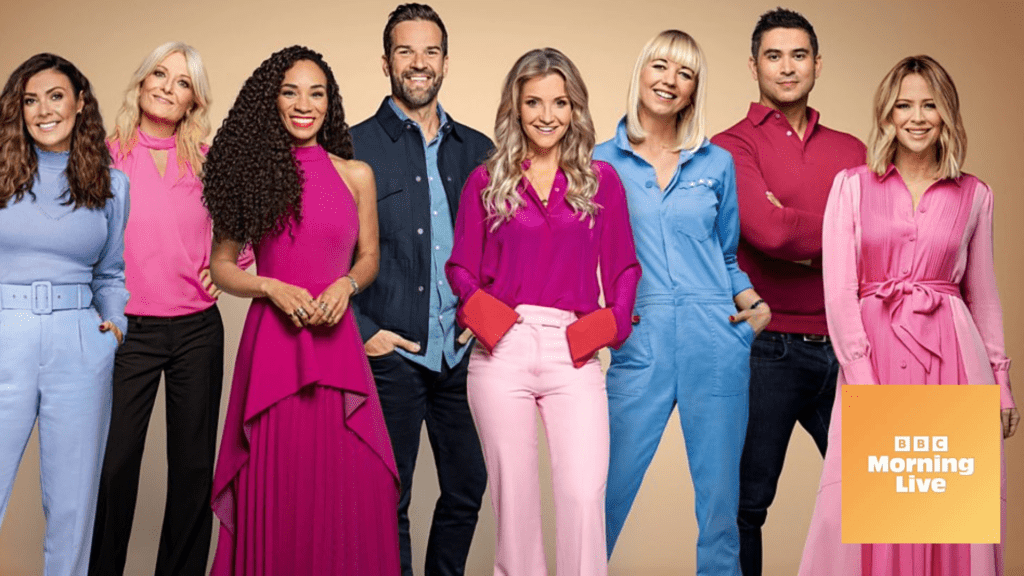
Morning Live’s approach to content is different from some other programmes. Emma explains that Morning Live doesn’t aim to be ‘the news’, but it is there to take the news and digest how they impact people’s lives. For example, their approach to a food recipe will also look at how much the ingredients are going to cost and whether people at home are going to have to spend money to buy tools to make it.
About The One Show
The One Show was launched in 2006 and it is broadcast every weekday live from 7pm to 7:30pm. The programme follows the evening news. It has to be topical, so the content has to be exclusive, something viewers won’t have seen earlier in the day. It also provides an opportunity for viewers to relax.
Emma says that while Morning Live is a programme you can have a cup of tea with, The One Show provides the sort of light relief that may invite the audience to have a glass of wine while watching an interview with a Hollywood star. The programme is only 30 minutes long, which allows for a limited number of stories. It is a very competitive show to get on. Emma advises to pitch guests and stories as early as possible because programmes are planned well in advance.
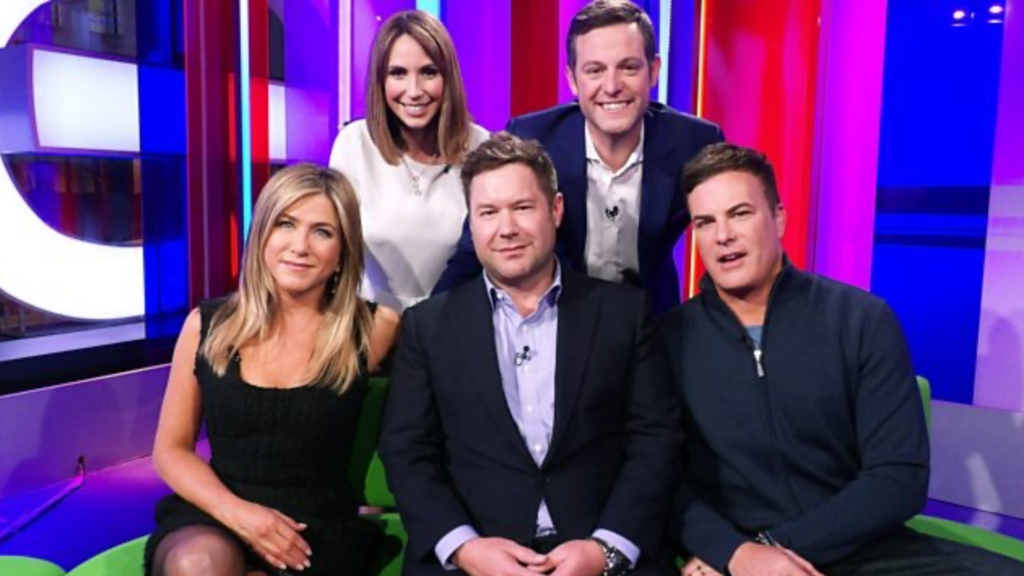
Interested in coming to our events?
We run regular events, online and in person, featuring senior people from the world of radio and television. Coming up we have Anna Tatton-Brown, Senior Editor of BBC News Channel and BBC World Service. Anna should have taken part in our Big Talk, but had to deal with a family emergency so is now going to speak at one of our Small Talks/.
If you’re mot already on our mailing list and would like to hear about our upcoming Small Talks, Big Talks and workshops drop us a line at hello@shoutcommunications.co.uk.
